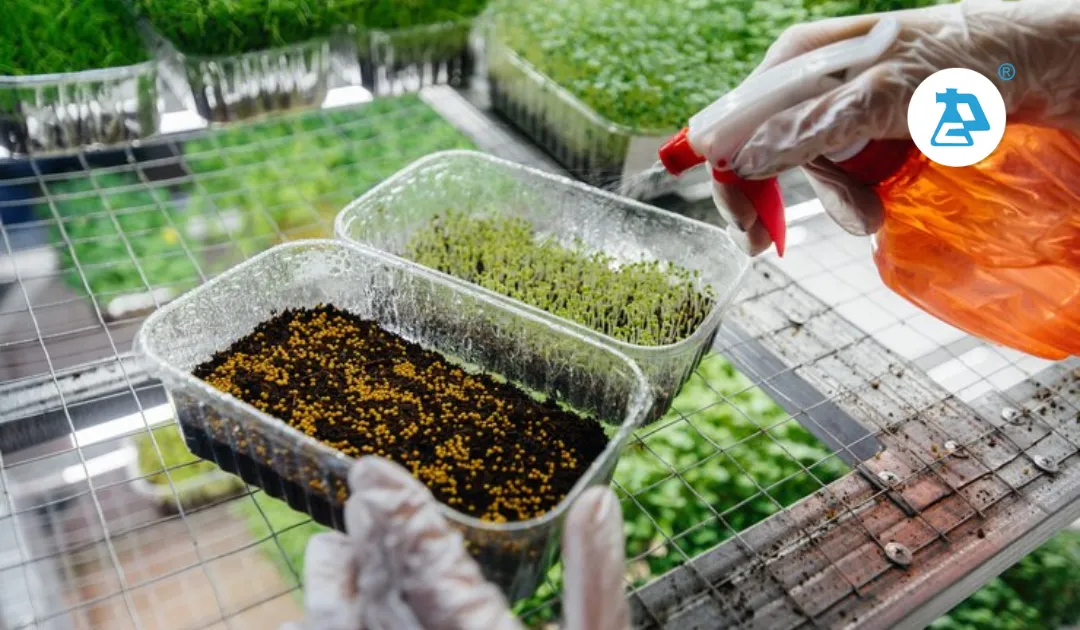Introduction
The significance of biofertilizers in boosting crop output has drawn a lot of interest in the search for sustainable and ecologically acceptable farming methods. In order to ensure food security and soil health, two crucial leguminous crops—green gram and black gram are crucial. These crops’ unique capacity to fix atmospheric nitrogen through a symbiotic interaction with nitrogen-fixing bacteria is what sets them apart from other plants. This article examines the importance of producing green and black grams as well as how biofertilizers can efficiently encourage nitrogen fixation, boosting yield and soil fertility.
Importance of Green-Gram and Black-Gram
Green-gram and black-gram, commonly known as mung beans and urad beans respectively, are leguminous crops with considerable economic and nutritional value. They are rich sources of protein, dietary fiber, and essential nutrients such as iron, calcium, and phosphorus. These crops are integral components of traditional diets in various parts of the world and contribute significantly to addressing malnutrition and enhancing food security.
Nitrogen Fixation: A Key Aspect
Black gram and green gram are both members of the legume family, which has the extraordinary capacity to establish a symbiotic association with nitrogen-fixing bacteria known as rhizobia. Specialized nodules on the roots of these plants are home to these bacteria. Rhizobia transform air nitrogen through a complicated metabolic process into a form that plants may utilize for growth and development. This organic process lessens or completely replaces the need for synthetic nitrogen fertilizers, which require a lot of energy to manufacture and can harm the environment.
Role of Biofertilizers
Biofertilizers play a pivotal role in supporting the nitrogen fixation process in green-gram and black-gram cultivation. These are microbial inoculants containing beneficial microorganisms such as rhizobia, mycorrhizal fungi, and phosphate-solubilizing bacteria. When applied to the soil or seed, biofertilizers establish a symbiotic relationship with the crop plants, enhancing nutrient uptake, improving soil structure, and promoting overall plant health.
Benefits of Biofertilizers in the Production of Green and Black Grass
- Increased Nitrogen Fixation:The presence of suitable rhizobia strains in biofertilizers guarantees efficient nitrogen fixation, resulting in larger plants and greater yields.
- Reduced Environmental Impact:Biofertilizers reduce the need for synthetic fertilizers, which can cause soil erosion and water body contamination.
- Improved Soil Health: Biofertilizers promote nutrient cycling and organic matter breakdown by improving soil structure and microbial activity.
- Cost-Effectiveness: The use of biofertilizers can result in lower fertilizer expenditures, particularly in farming settings with limited resources.
- Sustainable Agriculture: Using biofertilizers promotes long-term soil fertility and lowers the carbon footprint of farming, which are both in line with the principles of sustainable agriculture.
Application of Biofertilizers
Biofertilizers can be applied through foliar spraying, soil application, or seed treatment. However, it’s crucial to confirm that the biofertilizer strains are compatible with the particular crop and the current soil conditions. Making educated decisions concerning the application of biofertilizers can help farmers, as can consulting with agricultural specialists and performing soil tests.
Conclusion
Green and black grams are crucial crops that improve nutrition and food security, particularly in areas where they make up a sizable portion of the diet. Farmers can increase crop yields while lowering their impact on the environment by using biofertilizers to harness the natural process of nitrogen fixation. The promotion of environmentally responsible and sustainable practices, such as biofertilization, benefits not only the current generation but also ensures the fertility and productivity of the soil for future ones.




